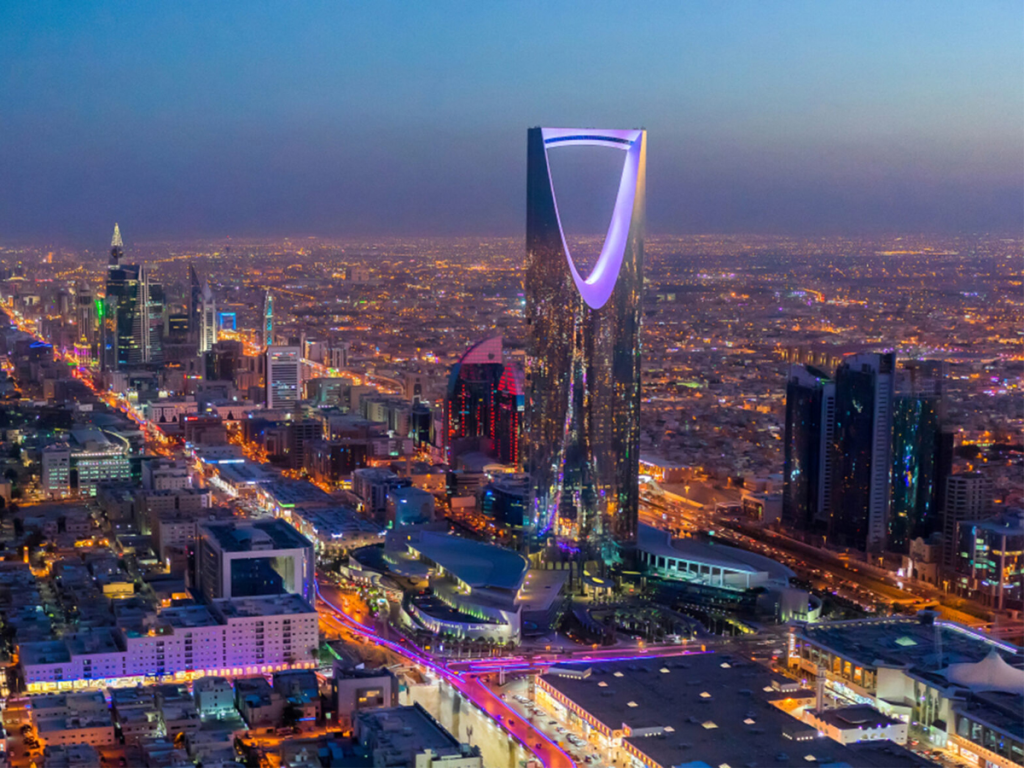Saudi Arabia’s gigaprojects have become the face of
Vision 2030 — ambitious, transformative, and unprecedented in scale.
With more than $1.25 trillion in active construction projects, the Kingdom leads the region in infrastructure spending. From NEOM and Diriyah Gate to the Red Sea Project, these developments are designed to diversify the economy, attract tourism, and position Saudi Arabia as a global hub for investment and innovation.
A Market in Transition
While the pace of new project awards has slowed, momentum on the ground remains strong. Riyad Bank’s latest PMI shows construction was the best-performing sector in May.
Job creation is occurring at one of the fastest rates in over a decade[?], supported by improved delivery times and robust sales. Business confidence has also reached an 18-month high, with firms expanding their teams and increasing investment.
This environment, however, demands a sharper focus on risk and resilience. Marsh’s Global Construction Risk Review 2025 highlights financial volatility as the top concern for contractors worldwide, cited by 28% of respondents.[?]
Capacity constraints are widespread, with 74% reporting difficulties meeting delivery targets. Yet only a third of contractors say they are using their surety capacity efficiently — a missed opportunity in today’s capital-conscious market.
Risk and Insurance as Strategic Tools
In the IMEA region, insurers are adapting to increasingly complex project requirements. More global reinsurers now offer LEG 3 design defect coverage across real estate and petrochemicals, while employers’ liability rates have fallen by 10%. Competitive conditions remain, but they rely on early market engagement and clear disclosure of project risks.
In Saudi Arabia, where lender-driven projects are common, insurance has become a critical tool for financing. Protections such as delay in start-up (DSU) and performance bonds are increasingly seen as essential for securing capital. Projects without robust insurance strategies risk losing investor confidence and slowing down funding.
Build with financial confidence, using cash flow analysis in FirstBit
Request a demo
Human Capital and Climate Readiness
Labor remains another pressure point. Skills shortages and retention challenges affect not only productivity but also safety and investor trust. Companies investing in workforce development, wellbeing, and leadership are proving better equipped to deliver large-scale programs.
Climate resilience is an equally pressing issue. Marsh’s research shows that 74% of contractors are concerned about climate-related risks, yet fewer than one-third use advanced modelling. In a region facing extreme heat, water scarcity, and rapid urbanization, climate planning is no longer optional — it is expected.
Technology adds further complexity as AI, IoT, and cloud platforms shape delivery and contribute to a rise in cyber risks. The surge in phishing, ransomware, and data breaches highlights the need for integrated cyber governance, insurance, and response strategies.
Looking Ahead
Despite these challenges, the outlook for Saudi Arabia’s construction sector is positive.
Marsh forecasts average annual growth of 5.4% through 2029, driven by infrastructure, housing, and preparation for global events.[?]
Sustaining this momentum will require discipline: early engagement with advisers, pre-planning labor and materials, embedding ESG and climate resilience, and integrating insurance and data management into project planning from day one.
This year’s slowdown is less a setback than a sign of maturity. The ambition of Vision 2030 remains intact, but delivering it will depend on resilience as much as scale.
For contractors, Saudi Arabia’s gigaprojects present both opportunities and challenges. The scale of investment offers unmatched potential, but margins will hinge on managing risks — from financial volatility and labor shortages to climate and cyber threats. Success will go to firms that integrate resilience into the construction process itself: investing in people, technology, and risk management with the same intensity as cranes and concrete.
Spot emerging trends and adapt fast
Monitor cash flows, project P&L, and KPIs
Request a demo

Anna Fischer
Construction Content Writer

See FirstBit ERP solutions in action
Discover how our system solves the unique challenges of contractors in a personalized demo.
After the demo you will get a quotation for your company.
After the demo you will get a quotation for your company.











